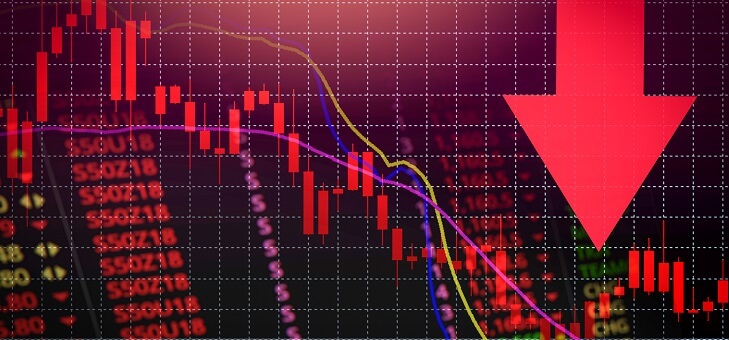Many retirees and those closing on retirement are likely looking sadly at sagging super balances due to stock market falls and the bleak global economic outlook.
The war in Ukraine, the energy crisis and lingering supply chain impacts caused by the pandemic are all contributing to the likelihood of Australia’s share market closing the financial year in the red.
The ASX200 index plunged more than five per cent this morning – the biggest drop since COVID hit in March 2020.
The index is down almost six per cent this year and, with the end of the financial year just weeks away, a recovery looks unlikely.
Read: Super system is failing retirees, says economist
With the fortunes of the stock market closely tied to superannuation returns, super balances are also down on previous years.
Data from financial research group Chant West shows median returns fell 1.2 per cent in April, bringing overall returns for the first 10 months of the financial year down 1.2 per cent. The group says that while it hasn’t completed figures for May, they appear similar.
“For the month of May, we’re kind of looking at down about one per cent, so net it is pretty flat,” says Mano Mohankumar, senior investment research manager at Chant West.
“We’re looking at the median that is pretty flat, so that will mean some funds are in positive [returns] and some are negative.”
Read: When do you have to start withdrawing your super?
If your fund is one of those in the red, or even if you’re unhappy with this year’s figures, it pays to remember super is a long-term investment and not to make any knee-jerk decisions to either withdraw or move funds that could solidify any losses.
“We always say you’ve got to keep in mind that super is a long-term investment and you don’t want to be distracted by short-term noise. Being distracted by short-term noise can really hurt your long-term outcomes,” says Mr Mohankumar.
“Attempting to time the market often results in inferior outcomes to staying the course. Shifting to a more conservative option after a period of share market losses – you are locking in those losses and potentially missing out on the rebound.”
For what it calls a ‘comfortable retirement’, the Australian Super Fund Association (ASFA) says you need to own your home and expect to spend around $63,799 per year for couples and $45,239 for singles. This translates to a lump sum at retirement age of $640,000 for couples and $545,000 for singles.
Read: How did your fund perform at the super fund awards?
Men aged 60 to 64 currently have a median super balance of about $178,800, and women retire with about $137,000, well short of AFSA’s target.
Some have criticised AFSA’s figures as being too high, but the YourLifeChoices Retirement Affordability Index, produced with The Australia Institute, shows a well-off self-funded retired couple would need to spend $81,434 annually to maintain their lifestyle. Even a modest lifestyle would cost $47,096 annually.
The ongoing economic shocks could pose a real threat to people’s retirement savings, but again panicking and withdrawing or moving your super balance now will only ensure you feel the full force of the current losses.
If you enjoy our content, don’t keep it to yourself. Share our free eNews with your friends and encourage them to sign up.

